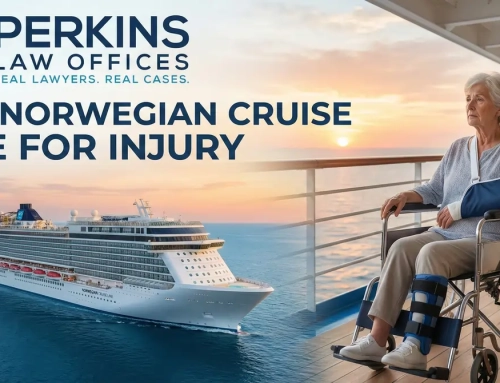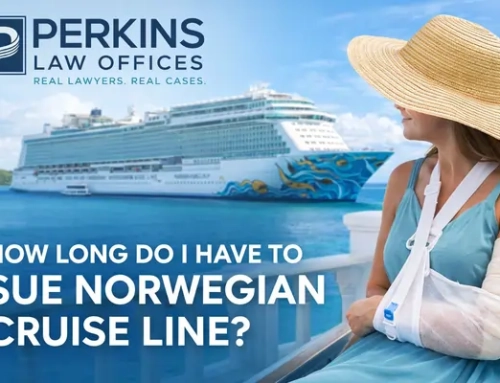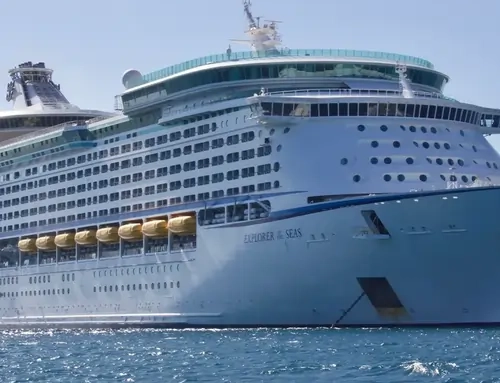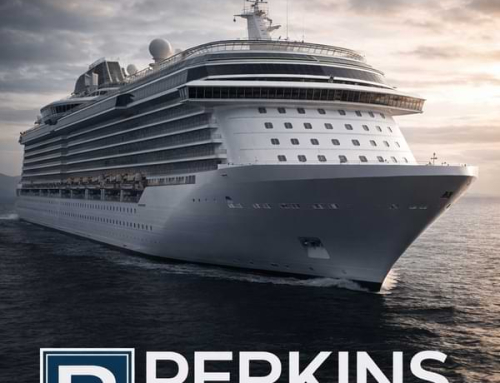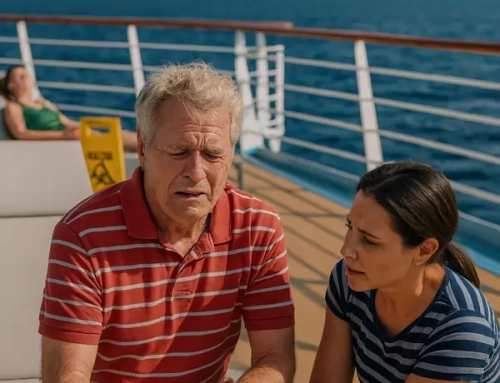Overview: Understanding Your Legal Rights After a Port Disembarkation Injury
Injuries that occur while disembarking a cruise ship at port are more common than many passengers realize—and they can raise serious legal questions. If you’ve been injured during the disembarkation process, whether on a gangway, dock, or while transitioning between the ship and port property, you may be asking a crucial question: Can I sue if I fell in port while disembarking?
AtPerkins Law Offices, we focus on representing victims of cruise ship negligence under maritime law. Our lead attorney, Alex Perkins, has years of experience handling complex cruise ship injury lawsuits, including claims involving incidents at ports of call. This guide will help you understand when and how you can hold responsible parties legally accountable—and what steps you should take next.
When Does a Port Disembarkation Injury Become Grounds for a Lawsuit?
The Legal Distinction Between Ship and Port
One of the first legal challenges involves determining who is liable. The location of your fall—whether on the gangway, cruise terminal, or the dock—plays a pivotal role.
Cruise Line Liability: If the fall occurred on the gangway or an area still under the control of the cruise line, the cruise company may be directly responsible under maritime law.
Third-Party Liability: If you fell in an area controlled by the port authority or a foreign government, such as a pier owned by a local entity, a separate legal claim may be necessary.
This distinction is crucial in any maritime personal injury claim. Establishing whether the cruise line had a duty of care and failed in that duty is essential in building a strong case.

Can I sue if I fell in port while disembarking?
Common Causes of Port Disembarkation Accidents
Identifying Negligence in Unsafe Conditions
Many disembarkation-related injuries stem from negligence or poor coordination between the cruise line and port authority. Some of the most frequent scenarios that lead to lawsuits include:
Slippery or uneven gangways
Lack of handrails or warning signs
Broken or damaged dock surfaces
Overcrowding or poor crowd control
Inadequate staff assistance during disembarkation
Sudden or improper gangway shifts due to tides
When these hazards are present, and no precautions are taken, passengers are placed at unnecessary risk. Victims may be entitled to file a disembarkation injury lawsuit if these dangers could have been prevented with reasonable care.
Proving Liability in Cruise Port Injury Legal Claims
What You Must Demonstrate to Win Your Case
Winning a cruise ship injury lawsuit for a fall in port requires proving the following:
Duty of Care: The cruise line or third-party entity had a legal responsibility to ensure your safety.
Breach: That entity failed to act reasonably, creating a dangerous condition.
Causation: The breach directly led to your injury.
Damages: You suffered verifiable losses—physical, emotional, or financial.
At Perkins Law Offices, we conduct thorough investigations, collect witness statements, review security footage, and work with experts to establish a clear connection between negligence and injury.
Who Can Be Held Responsible?
Multiple parties can be at fault, depending on the circumstances:
Cruise Lines (such as Carnival, Royal Caribbean, or Norwegian)
Port Authorities or Terminal Operators
Third-Party Tour Vendors or Ground Staff
Foreign Government-Owned Dock Facilities
Understanding the jurisdictional overlap is complex and requires a maritime attorney for cruise ship accidents who understands international port operations and U.S. federal maritime law.
What Compensation Can I Recover?
Victims of slip and fall cruise port lawsuits or other disembarkation-related incidents may be eligible for compensation covering:
Medical expenses (including emergency and long-term care)
Lost wages or earning potential
Pain and suffering
Permanent disability
Travel disruption costs
Emotional distress
At Perkins Law Offices, we build each case with an individualized approach, using expert testimony and real documentation to demonstrate the impact of your injuries.
How Long Do I Have to File a Claim?
Cruise ship injury claims are governed by strict time limitations. Most tickets include a 1-year statute of limitations, and you must often provide written notice within 6 months of the incident.
Failing to act in time could forfeit your right to sue—even in serious injury cases. That’s why we recommend contacting a Miami cruise injury lawyer immediately after the accident.
Real Case Insight: Disembarkation Injury in Port of Miami
We recently handled a case where a passenger was injured while disembarking at the Port of Miami. Due to a misaligned gangway and lack of signage, our client tripped and fractured her ankle. Despite initial denials of fault, we uncovered evidence showing the cruise line had received previous complaints about similar conditions. We secured a substantial settlement without the need for a lengthy trial.
This is one of many examples where swift legal action, detailed investigation, and knowledge of cruise ship negligence claims made a critical difference.
What to Do Immediately After a Port Disembarkation Injury
If you fell while disembarking a cruise ship, take these immediate steps:
Seek Medical Attention: Document all injuries, no matter how minor they seem.
File a Report: Notify the cruise ship or port authority before leaving.
Take Photos and Videos: Capture the area where the fall occurred.
Get Witness Information: Other passengers may have seen what happened.
Preserve Your Ticket and Documentation: Your cruise contract contains vital legal terms.
Contact a Lawyer: Speak with a qualified cruise accident lawyer in Miami as soon as possible.
H1: Why Choose Perkins Law Offices
Led by Alex Perkins, our firm combines deep knowledge of maritime law with an aggressive and strategic litigation style. We don’t treat your case as just another claim—we pursue maximum compensation with the personal attention and legal sophistication your situation demands.
National and International Case Reach
In-Depth Understanding of Cruise Line Litigation
Experienced in Jones Act and General Maritime Law
Track Record of Proven Results
Whether the injury happened in the Port of Miami, in a foreign country, or at sea, we know how to fight cruise corporations and win.
Frequently Asked Questions (FAQs)
Can I sue if I fell in port while disembarking a cruise ship?
Yes, if your injury was caused by negligence—such as unsafe conditions, lack of signage, or improper disembarkation procedures—you may have grounds for a maritime personal injury claim.
Is the cruise line always responsible for injuries at the port?
Not always. Liability can fall on port authorities or third-party operators depending on where and how the accident occurred. A lawyer can determine the responsible party.
How much compensation can I expect for my injury?
Compensation depends on the severity of your injuries, medical costs, loss of income, and other damages. Some cruise ship injury settlements range from $25,000 to over $500,000, depending on the circumstances.
What if my accident happened in a foreign port?
You can still file a claim under U.S. maritime law if the cruise line is a U.S.-based company or if your ticket contract specifies jurisdiction in a U.S. court.
How quickly should I contact an attorney after a port injury?
Immediately. Maritime injury claims have tight deadlines—often just six months to give written notice and one year to file. Delay could jeopardize your entire claim.
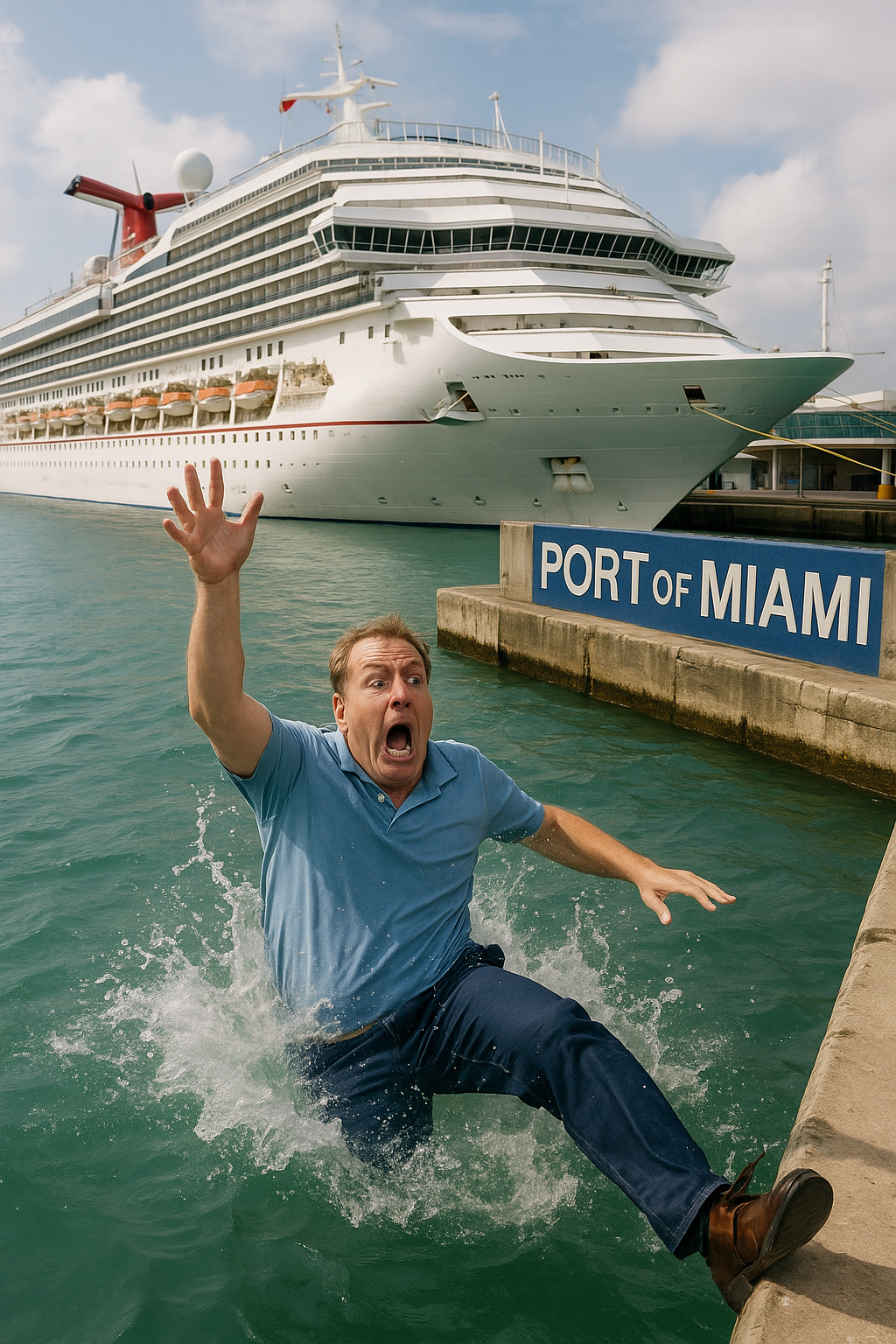
Can I sue if I fell in port while disembarking?
Take Action Now – Consult With a Maritime Attorney
If you’ve been injured while disembarking a cruise ship—whether in the Port of Miami or abroad—don’t wait. Contact Perkins Law Offices today for a free, confidential consultation. We’re prepared to fight aggressively for the justice and compensation you deserve.
Let us determine whether you have a valid cruise ship disembarkation accident claim—and guide you every step of the way.
Call now or contact us online to schedule your free case evaluation.
Your recovery starts with knowing your rights.

